Do you know what is the most antioxidant-rich food in the world? If I would ask you to name three antioxidants, what would you say? Why are antioxidants exactly good for your body? Are you eating a diet high in antioxidant foods?
In this article, I give you the essence of all you need to know about these amazing power-helpers: antioxidants.
What are antioxidants?
If I would ask you: What are anti-oxidants good for? What would you respond?
Most of us reply with words like free radicals, oxidative stress, anti-aging etc.. That’s a good start. And we’ll put all of these worlds into context in the next paragraph.
There is a lot in the word: anti-oxidant, already. First, you have the “anti” which means “against”. Followed by “oxidant”, which stands for “oxidation”. So anti-oxidants are basically substances that work against oxidation in our body.
Oxidation or “when the apple turns brown”
Remember last time you cut an apple and after a few minutes, it started to turn slightly brown?
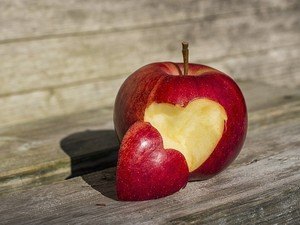
This is oxidation. The cells inside the apple got exposed to oxygen. And now start reacting to it. The apple cells oxidise.
Oxidation is a natural process in the human body. Whenever your body is under stress, it starts oxidising. Living as a human being on a planet earth there is no way to never be stressed. Stress is part of our daily life, and not always negative. Think of the last time you went for a long walk or even a run in nature. Physical exercise has awesome health benefits for you and at the same time triggers small amounts of oxidation. Your body can handle that without problems. It’s designed that way. 🙂
But in today’s world, the stress level for your body has magnified. Smoking, alcohol, environmental pollutants, sunburn and pesticides are just a few major triggers for oxidation in your body. Even emotional stress like anxiety and depression trigger oxidation.
Stable vs. radical – or “molecules need romance, too”
Let imagine a healthy cell in your body. Every cell is made out of millions to trillions of molecules. Just like a massage ball molecules have on their surface little nubs, named electrons.

Molecules that are “happy” have electrons in pairs on their surface. Somehow molecules aren’t that different from humans, they feel stable when they have their pair.
So, when a molecule has all its electrons in pairs is it stable. It’s happy, content with how it is.
When your body experiences stress, oxidation happens. This has an effect on the molecules in your body. In the oxidation process your “happy”, stable molecule loses some its paired electrons. Now the affected molecule becomes unstable. It lacks some of its electrons. Unpaired electrons make our molecule unstable, “unhappy” and “aggressive”. After all, molecules are like humans, aren’t they?

The medical term for this unstable molecule that misses some of its electrons is free radical. Oxidation is a stress-related process in the body that produces free radicals.
Free Radicals or “the vicious cycle of jealousy”
Now, just one or two of these “angry” molecules shouldn’t be a problem for the body, right? After all, our body has approximately 37.2 trillion cells. And every cell is made out of millions of molecules.
Have you ever had a talk with your best friend who just got heart-broken? You felt so much with her or him that it was almost like you had lost the love of your life, too? Then you talked to another friend, still in the heart-broken mood and you spread the sad news?
This is exactly what happens when an unstable, “angry” molecule meets a stable “happy” one. The free radical triggers a chain reaction. Every molecule that the free radical “meets” becomes unstable, too.
The unstable, free radical needs to replace its lost electron pairs. And it just steals the missing electrons form every stable molecule it meets.
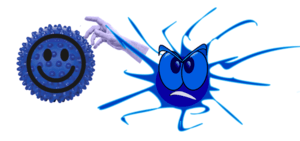
After this “traumatising experience” the former stable, “content” molecule now becomes a free radical, too.

These two now go transform more stable molecules into unstable, free radicals. This vicious cycle is called oxidative stress.
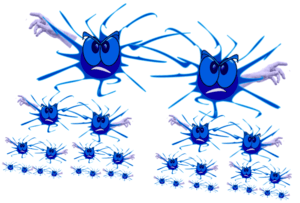
Is there any cure for this outbreak of jealousy?
Yes, its name is antioxidants.
Antioxidants – or “the Mother Theresa of molecules”
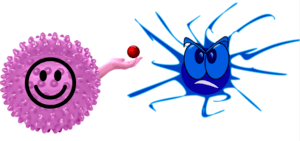
First of all, antioxidants are generous. When an antioxidant meets a free radical it gives it all its missing electrons. Therefore antioxidants transform the unstable, aggressive molecule into a “happy”, stable one. As a result, it breaks the vicious cycle of oxidative stress. And even better, the antioxidant is stable with or without the donated electrons. Hence antioxidants don’t become new free radicals. They just have an abundance to give, think of Buddha, Mother Theresa or Jesus. Isn’t it amazing to have such miracle molecules as part of our body?
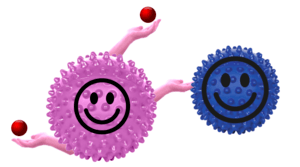
But as we age and our body builds up toxins, viruses and bacteria, our bodies ability to produce antioxidants reduces. Furthermore, your diet choices play a crucial role here, too.
While there are many, many different types of antioxidants it’s good to know which ones you personally need most.
Let look into my three favourite antioxidants. And you’ll learn how they can support you and your body’s wellbeing.
The Grandmother of All Antioxidants – Vitamin C
When a Hungarian scientist named Albert Szent-Györgyi discovered vitamin C in 1928, a breakthrough began. 1932 vitamin C became the first vitamin that was reproduced in a laboratory. This is where all the craziness around ascorbic acid, vitamin C started.
You can’t underestimate the antioxidant power this vitamin has. It’s one of the most powerful anti-aging support you can get. Because it helps your body to produce collagen. Collagen is a protein that your body needs to build firm, youthful skin, healthy bones and strong blood vessels.
But most of us know vitamin C as a friend when we suffer from a cold or general low immunity. And indeed, vitamin C helps to build up your immune system by supporting the growth of healthy white blood cells.
Some antioxidants can be built by your body but vitamin C isn’t one of them. So we need to get our daily vitamin C doses through the food we eat. Although the vitamin isn’t hard to get many of us are deficient in this powerful antioxidant.
This has two reasons.
Why are we often Vitamin C deficient?
With the industrial production of ascorbic acid, the health supplement boom started. Nowadays you can get synthetical vitamin C, this white crystalline powder in every pharmacy or health store. Opposite to what we commonly know: Vitamin C out of the plastic tub isn’t quite the same as the one out of a fresh orange.
Although you might want to support your immune system in times of stress. If you take isolated ascorbic acid your body doesn’t necessarily benefit from it. Did you know that your cells can be in need of vitamin C although you are taking vitamin C supplements?
Isolated white powder vs. a fresh orange
One reason why many of us have a vitamin C deficiency is because our body is not made to absorb isolated vitamins. Imagine an orange for example. Oranges are naturally rich in Vitamin C.

But this fruit is not only rich in vitamin C. An orange has many other vitamins, minerals like calcium and other phytochemicals. For your body an orange is a mix of nutrients it can benefit from. Hence it can absorb the vitamin C easily and use it to support us.
We haven’t really figured out how complex our human digestion really is. But if you just take a moment and feel into your body. Doesn’t it make sense? Doesn’t it make sense that your body can absorb nutrients from natural whole foods easily and use them to your advantage?
One apple per day isn’t enough
Another reason why our body is not bathed in an abundance of vitamin C is because we do not eat enough fruits. It’s as easy as that. Fruits are our main food source of vitamins. Eating an apple per day is a great start, but it’s not enough.
I recommend eating at least 5-6 pieces of fruit per day. Rather more than less. Especially in times of stress or illness, you can easily double the amount. Most of our illnesses would benefit enormously from eating more ripe and fresh fruits.
An unusual tip to boost your vitamin C levels
Did you know that vitamin C is not only a powerful fighter against free radicals but also helps your body to eliminate virus and bacteria?
One of the best tips I’ve ever got was from a dear friend and highly experienced naturopath: He recommended me to drink one glass of fresh pressed fennel juice every morning. Fennel is rich in a special form of vitamin C which has a very high bioavailability. Therefore your body can use this vitamin C extremely well to protect and heal itself.
In times of great pressure, quick wheater changes or emotional distress I recommend you to have a large class of fennel juice for 3-5 days in a row. As a result, you will be flooding your body with the best antioxidant and immune supporter you can get, grandmother vitamin C.
Glutathione – The Master Antioxidant
Do you know what molecule our body is mostly made of? H2O – water, yes. While you’ve probably heard that before. Here is what likely surprises you: Right behind H2O on your molecule count is Glutathione. (I’ve had to practice this word at least 10 times before recording the video above). It’s pronounced “gloota-thigh-own”. Just in case you want to impress your friends after reading this. 😉
Glutathione protects every cell in your body from the inside
Glutathione is a powerhouse. Did you know that this small molecule is a part of every cell in your body? It’s called the Master Antioxidant because it supports all other antioxidants in your body to work at their best. And I have great news for you: Remember earlier we found out that some antioxidants are build by your body? Vitamin C needs to be brought in from outside. Glutathione doesn’t. Your body produces it in abundance. At least if your body is balanced and healthy.
Isn’t it fascinating that you’ve probably heard of many other antioxidants, vitamin C, vitamin E, Coenzyme Q10 etc.. Yet nobody talks about Glutathione, the most abundant and most important antioxidant in our entire body.
Chronic diseases = Glutathione deficiency
Maybe we don’t need to talk about it because we have enough of it? Unfortunately, nowadays this is rarely the case. Research has found out that Glutathione deficiency and chronical illnesses directly correlate.
I would even go as far as saying: If you have a chronic condition. May it be a serious autoimmune disease like Multiple Sclerosis or “just” a digestive disorder, it’s very likely your Glutathione depots are either depleted. Or your body isn’t able to reproduce enough of this master antioxidant.
Furthermore interesting to know is that Glutathione has a 10 times higher concentration in your liver. Your liver is your main detoxification organ. And Glutathione is the most powerful detoxifier your body can produce.
As a result, if we are deficient in this master antioxidant our, likely already overburdened liver, suffers.
So, I hope I got you on board now. Are you up for supporting your body to produce more glutathione?
How can I best support my body to produce Glutathione?

There are two simple ways.
Eat cruciferous vegetables once a day. This is a family of veggies who are all rich in a sulfur component that supports the production of Glutathione. Broccoli, cabbage, brussels sprouts, cauliflower and kale should be on your daily plate.

Curcumin is a part of the famous anti-inflammatory all-round root: Turmeric. You can use the fresh root or the dried spice. Sprinkle it over your cooked meals, best combined with some black pepper to increase its receptivity.
I recommend to include turmeric with 2-3 teaspoons per day into your life. This will not only boost your glutathione production but decrease naturally inflammation and overall stabilise your body.
Isn’t that easy to implement?
The Antioxidant that Saves Your Brain – Alpha-Lipoic Acid (ALA)
Another antioxidant with a crazy complicated name: Alpha-Lipoic Acid.
This one, however, has a unique ability which makes the effort worth. Unlike most antioxidants, Alpha-Lipoic Acid can be easily transported in your brain. In general, the blood-brain barrier, our natural brain defence system, doesn’t allow antioxidants to pass. There are a few exceptions. And ALA is one of them. As chronic diseases such as Alzheimer and Dementia are based on inflammation, Alpha-Lipoic Acid can be a lifesaver for us. Antioxidants help to lower the inflammation by scavenging free radicals.
ALA or The Fear of Chronic Brain Diseases
And ALA does this “healing” of free radicals, especially in our brain. Hence if you or your loved ones suffer from Alzheimer or Dementia, this brainpower antioxidant is part of your healing path.
But maybe you are lucky enough to “only” struggle with symptoms like brain fog, memory problems or oversensitive nerves. ALA is there to help you heal.
Diabetes, Liver Health and co.
And that is not all. This special antioxidant can help with diabetes. It increases the sensitivity for insulin and so makes it easier for your pancreas to do handle sugar.
Furthermore Alpha-Lipoic Acid literally heals your liver. Most noteworthy is its ability to act as a toxic heavy metal chelator. The liver is our biggest storage organ. Unfortunately, we only feel that our liver is in trouble with secondary symptoms like tiredness, alcohol or fat intolerance, digestive problems or weight gain.
Finally, our miracle antioxidant helps to increase producing the master antioxidant, Glutathione. Isn’t that amazing?
How can I get more ALA for my body?
While the good news is, just like Glutathione, our body can make it’s own brain healing antioxidants. But through the way we live and especially our daily dietary choices we can end up in a deficit for Alpha-Lipoic Acid. If you have any of the health impairments mentioned above it is worth to take action here.
Although our body is able to produce ALA on its own, it is very easy to boost your antioxidant levels through diet.
My top three choices are raw spinach, flaxseeds (=linsseds) and broccoli (can be cooked). Make sure to eat at least one of these sources of ALA daily. And you are on the right track.
Antioxidant foods – What foods should you eat daily?
So, in the jungle of different antioxidants, there are only two possibilities. Either your body produces antioxidants, like Glutathione itself or you need to get them through your diet, like Vitamin C.
Paying attention to eating natural, plant-based foods that are rich in antioxidants is a great way to support your body to heal. Because, no matter which antioxidant foods you choose to eat, you decrease free radicals in your body and lower disease promoting inflammation.
You don’t need to understand all the biochemical processes of how each antioxidant promotes health in your body. If you want to just feel better, improve your energy levels, your immunity, heal from chronic diseases, improve mental clarity, sleep better etc. – make sure you use the one biggest source of natural antioxidant foods there is: fruits.
Below you see which foods have the most antioxidants. And without a hard look, you’ll discover fruits are everywhere on the antioxidant food table. 🙂
Antioxidant Foods Table With ORAC Value
The ORAC value stands for Oxygen Radical Absorbance Capacity. This how the antioxidant content is scientifically measured. The National Institute on Aging at the National Institutes of Health developed this scale.
Below you find a list of the highest scores:
- Wild blueberry 1 cup 13,4273
- Red kidney bean (dried) Half cup 13,2594
- Pinto bean Half cup 11,8645
- Blueberry (cultivated) 1 cup 9,0196
- Cranberry 1 cup (whole) 8,9837
- Artichoke (cooked) 1 cup (hearts) 7,9048
- Blackberry 1 cup 7,7019
- Prune Half cup7,29110
- Raspberry 1 cup 6,05811
- Strawberry 1 cup 5,93812
- Red Delicious apple 1 whole 5,90013
- Granny Smith apple 1 whole 5,38114
- Pecan nuts 1 ounce 5,09515
- Sweet cherry 1 cup4,87316
- Black plum 1 whole 4,84417
- Russet potato (cooked)1 whole 4,64918
- Black bean (dried)Half cup 4,18119
- Plum 1 whole 4,11820
- Gala apple 1 whole 3,903
Look at all the berries on that list!
And now you know how to answer the question: Which are the best antioxidant foods in the world? Wild blueberries yes! And the great thing is they even taste delicious!

If you want to make sure get ample amounts of antioxidants, I recommend you to include 200-300gr berries in your daily diet. Doesn’t need much convincing, doesn’t it?
Let me know in the comments below, I am curious to hear from you. What are your favourite antioxidant foods?
Peggy

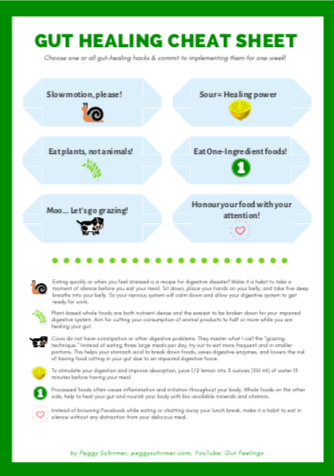
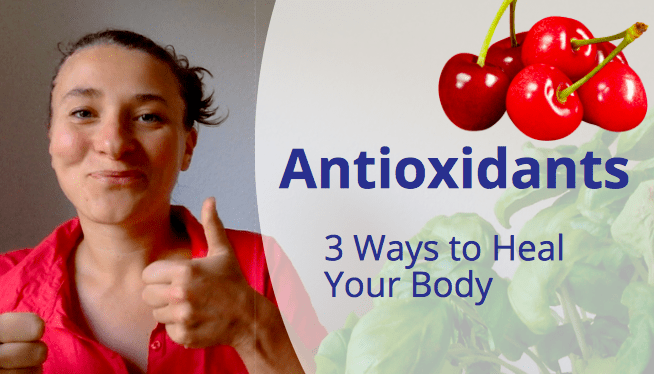
Thanks for finally talking about > Antioxidant Foods – Can antioxidants help you heal your body?
Which foods do I need to eat to get the most antioxidants?
< Loved it!